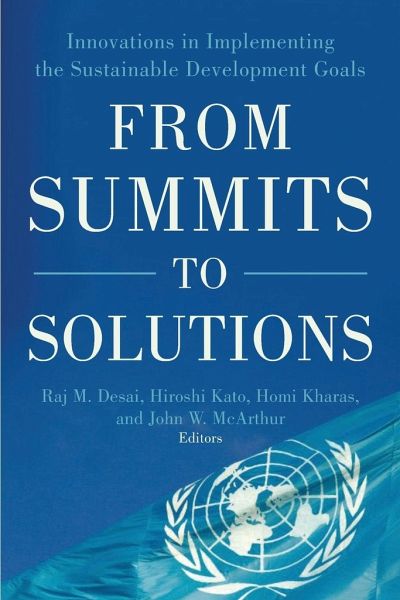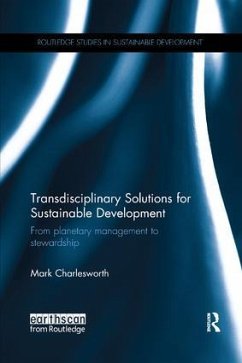
From Summits to Solutions
Innovations in Implementing the Sustainable Development Goals
Herausgeber: Desai, Raj M.; Kharas, Homi; Kato, Hiroshi
Versandkostenfrei!
Versandfertig in 1-2 Wochen
54,99 €
inkl. MwSt.
Weitere Ausgaben:

PAYBACK Punkte
27 °P sammeln!
A positive agenda for achieving the Sustainable Development Goals by 2030 All 193 member nations of the United Nations agreed in September 2015 to adopt a set of seventeen "Sustainable Development Goals," to be achieved by 2030. Each of the goals-in such areas as education and health care -is laudable in and of itself, and governments and organizations are working hard on them. But so far there is no overall, positive agenda of what new things need to be done to ensure the goals are achieved across all nations. In a search of fresh approaches to the longstanding problems targeted by the Sustai...
A positive agenda for achieving the Sustainable Development Goals by 2030 All 193 member nations of the United Nations agreed in September 2015 to adopt a set of seventeen "Sustainable Development Goals," to be achieved by 2030. Each of the goals-in such areas as education and health care -is laudable in and of itself, and governments and organizations are working hard on them. But so far there is no overall, positive agenda of what new things need to be done to ensure the goals are achieved across all nations. In a search of fresh approaches to the longstanding problems targeted by the Sustainable Development Goals, the Japan International Cooperation Agency and the Global Economy and Development program at Brookings mounted a collaborative research effort to advance implementation of Agenda 2030. This edited volume is the product of that effort. The book approaches the UN's goals through three broad lenses. The first considers new approaches to capturing value. Examples include Nigeria's first green bonds, practical methods to expand women's economic opportunities, benchmarking to reflect business contributions to achieving the goals, new incentives for investment in infrastructure, and educational systems that promote cross-sector problem solving. The second lens entails new approaches to targeting places, including oceans, rural areas, fast-growing developing cities, and the interlocking challenge of data systems, including geospatial information generated by satellites. The third lens focuses on updating governance, broadly defined. Issues include how civil society can align with the SDG challenge; how an advanced economy like Canada can approach the goals at home and abroad; what needs to be done to foster new approaches for managing the global commons; and how can multilateral institutions for health and development finance evolve.













